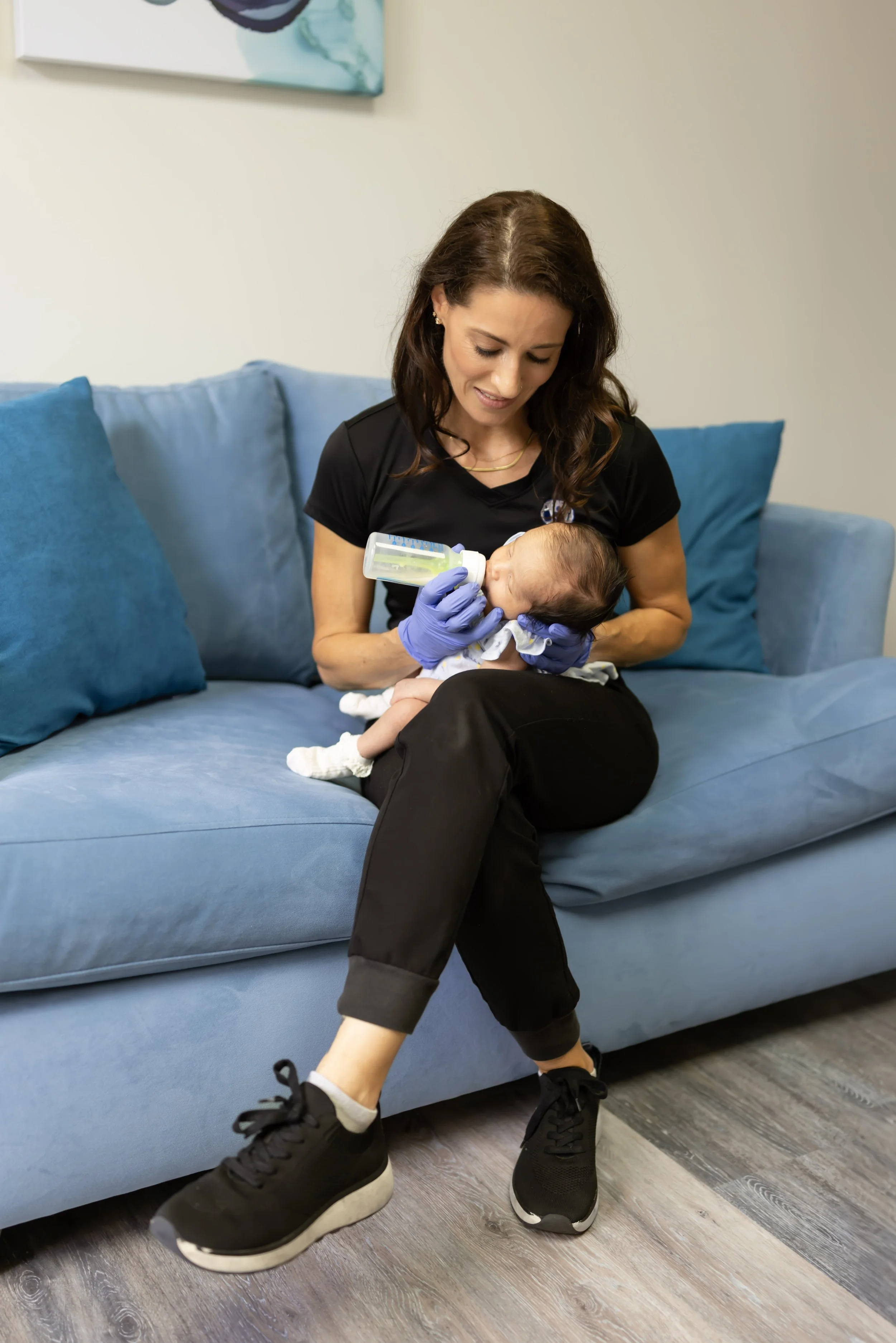Little Eaters & Talkers
Gentle, Effective Help for Bottle Aversion
Supporting infants and families through responsive, expert care for bottle refusal and feeding struggles.
Does your baby cry, turn away, or resist every time a bottle is offered? You're not alone — and you're not doing anything wrong. We specialize in helping infants overcome bottle aversion using a responsive, evidence-based approach that supports both baby and caregiver.
What Is Bottle Aversion?
Bottle aversion is often misunderstood but can create many feeding challenges. It occurs when an infant consistently resists or refuses bottle feeds, sometimes becoming distressed even at the sight of the bottle.
This isn’t just a “picky phase.” Bottle aversion is typically a response to discomfort, pain, or anxiety experienced during previous feedings. Over time, babies can associate the bottle with negative experiences and begin to avoid feeding altogether. This is also different from a preference. For example, a baby who prefers to breastfeed but refuses the bottle.
Little Eaters & Talkers
Bottle Aversion Therapy for Infants
Common Signs of Bottle Aversion
Crying, arching, or pushing the bottle away when offered
Eating only while drowsy or asleep
Short, distracted, or incomplete feeds
Extreme frustration for caregivers around feeding time
Rigid feeding routines out of fear baby won’t eat.
Our Approach to Bottle Aversion Treatment
At Little Eaters & Talkers, we believe feeding should be a relationship — not a struggle. Our treatment approach is:
Responsive – led by your baby’s cues, never forceful
Trauma-informed – honoring past medical experiences and stress
Collaborative – coaching and empowering parents at every step
Clinically grounded – rooted in extensive experience with neurological and feeding disorders
We work to gently rebuild your baby’s trust in feeding and help you feel confident and supported throughout the process.
Frequently Asked Questions for Bottle Aversion Therapy
What to Expect from a Feeding Therapy Evaluation
Initial Evaluation (60-90 minutes) Virtual or in person (Houston, TX)– We assess your baby’s feeding history, medical background, sensory profile, and current feeding behavior.
Individualized Plan – You’ll receive a tailored care plan that may include bottle adjustments, environmental changes, and specific techniques to reduce stress.
Family Coaching – We’ll walk with you step-by-step, offering real-time feedback and emotional support. Daily texting for the first 7-10 days. Then follow-up visits virtually or in-person, as needed.
Progress Monitoring – We track and adjust the plan to ensure lasting success.
What if my baby is also breastfeeding?
We work with both bottle-fed and breastfed infants, including those who are transitioning or combo feeding. If you're also experiencing challenges with breastfeeding, we can help coordinate care with lactation consultants or address dual feeding plans.
For infants with true bottle aversion, it is generally recommended to focus on bottle feeding and then we can incorporate breastfeeding back into the picture when your baby learns to enjoy eating again.
What age is appropriate for bottle aversion treatment?
Bottle aversion treatment is typically focused on infants from birth to around 18 months, but we evaluate each case individually. If your baby is refusing bottle feeds at any age, we’re happy to discuss whether therapy could help.
How do I know if it’s bottle aversion and not something else?
True bottle aversion often includes emotional signs (crying, pushing the bottle away, arching) combined with persistent feeding refusal. It’s different from occasional fussiness. During the initial evaluation, we help determine the root cause and rule out other factors like flow issues, oral motor delays, or reflux.
At Little Eaters & Talkers, we’re a team of speech-language pathologists and lactation consultants with specialized training in infant feeding. We bring together medical, developmental, and feeding expertise to accurately assess what’s going on and create a treatment plan that addresses the root cause — whether it’s bottle aversion or another feeding challenge.
Do you take insurance?
We are a private-pay clinic and can provide superbills for reimbursement. Initial evaluation is $350, including 7-10 days of daily messaging.


